Author Archives: Yona Zeldis McDonough
April 22, 2019 by Yona Zeldis McDonough
A Novel Bends Time at the Onset of the Holocaust
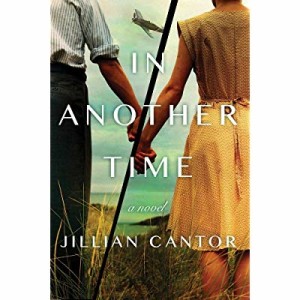
A talented young female musician, the bookselling man who loves her and a quasi-magical way to escape the rising Nazi horror in Germany are the key elements in Jillian Cantor’s latest novel, In Another Time.
Below she chats with Fiction Editor Yona Zeldis McDonough about how she crafted this original and compelling story that asks whether it’s really possible to escape the horrors of history.
- 1 Comment
April 17, 2019 by Yona Zeldis McDonough
Golden Girls of the Silver Screen
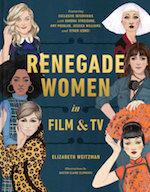
Well told and illustrated with charm, Renegade Women is a coffee table book for our feminist pop cultural age. It offers more than 60 informative and whimsically illustrated portraits of female movers and shakers in the entertainment field.
Fiction Editor Yona Zeldis McDonough chats with author Elizabeth Weitzman about the importance of highlighting their impressive accomplishments.
- No Comments
April 17, 2019 by Yona Zeldis McDonough
The Story of a Storyteller
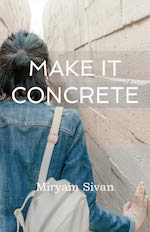
Longtime Lilith readers may remember Miryam Sivan’s name; her story Roadkill appeared in the magazine in 2003 and City of Refuge was featured in 2011.
Now she’s back with her debut novel, Make It Concrete, which is set in contemporary Israel and follows a woman who transcribes Holocaust stories. Sivan talks to fiction editor Yona Zeldis McDonough about how the past shapes and even defines the present.
- No Comments
April 15, 2019 by Yona Zeldis McDonough
From “I Hate Everyone” to “While Grandpa Naps,” Naomi Danis on Her Fiction for Young Readers
Naomi Danis is Lilith’s resident angel/soother of souls/bridge over troubled waters. She combines a practical-get-it-done attitude with an uncommon amount of kindness and empathy and she is much-loved within the office and beyond.
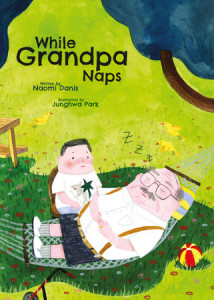 Danis is also an accomplished author of several well-received picture books and as she prepares to launch her latest, While Grandpa Naps, illustrated by Junghwa Park, she talks to Fiction Editor Yona Zeldis McDonough about the way she keeps so many balls spinning in the air with such effortless grace.
Danis is also an accomplished author of several well-received picture books and as she prepares to launch her latest, While Grandpa Naps, illustrated by Junghwa Park, she talks to Fiction Editor Yona Zeldis McDonough about the way she keeps so many balls spinning in the air with such effortless grace.
YZM: Tell us when you started working at Lilith and a little bit about what the job has been like.
ND: I started working at Lilith in 1988, after nine years at home raising three children, during which time I began seriously writing for kids. I had trained as an early childhood teacher, also have an MA in English, but learned from a friend at my Forest Hills synagogue who did grant writing that Lilith was looking for someone. The position turned out to be administrator, and I really wanted to be called something like assistant editor, but two friends in publishing I consulted said if you like the people, take the job. I still love it after all these years, and feel very lucky and grateful every day. I have the kindest, smartest, funniest, most caring, talented, inspiring and encouraging colleagues.
- No Comments
April 11, 2019 by Yona Zeldis McDonough
A Novel Invents a Musical Masterpiece
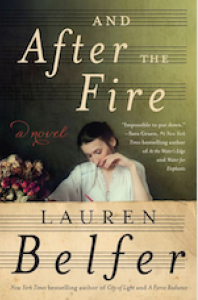
Lauren Belfer’s And After the Fire, is a complex, highly textured novel that moves easily between past and present to tell the converging stories of musicians and those in their orbits, centering around one imagined musical masterpiece through the centuries.
Winner of the National Jewish Book Award, Belfer talks to Lilith’s Fiction Editor Yona Zeldis McDonough about the inner melody that led to this highly original and haunting story.
Yona Zeldis McDonough: What inspired you to write about a fictional piece of music?
- 1 Comment
April 9, 2019 by Yona Zeldis McDonough
A Jewish Beauty’s Journey, in Fiction

Entertaining and witty, Susan Dworkin’s novel, The Garden Lady—chronicling a woman of notable beauty—nonetheless asks some penetrating questions about the lies we tell ourselves in order to keep going.
Fiction Editor Yona Zeldis McDonough talks to Dworkin, a feminist who worked at Ms. in its early days, about what Gloria Steinem called her “new dreams of justice” and how she’s pursued them both in this novel and elsewhere.
- No Comments
April 8, 2019 by Yona Zeldis McDonough
A (Feminist) Defense of Barbie as She Turns 60
Barbie has just turned 60, a long lifespan for a toy. But then Barbie has always been more than a toy—much more. She was the brainchild of Ruth Handler, a savvy, stubborn Jewish businessman woman (her husband Elliot was the second half of Mattel) who got the idea watching her daughter Barbara play with paper dolls. These dolls were women, and integral to their charm was the fact that they came with numerous outfits and could be endlessly redressed. Handler envisioned a plastic, 3-D version of the doll, which would have represented a significant departure from the baby-and-little-girl dolls of the period.
- No Comments
March 22, 2019 by Yona Zeldis McDonough
A Breathtaking Novel Set on the Eve of World War I
 Set in the years before and just leading into World War I, House of Gold is a vast, enthralling tapestry of a novel. The story moves seamlessly from character to character and place to place, all the while picking up speed and momentum as the war looms ever closer.
Set in the years before and just leading into World War I, House of Gold is a vast, enthralling tapestry of a novel. The story moves seamlessly from character to character and place to place, all the while picking up speed and momentum as the war looms ever closer.
Fiction Editor Yona Zeldis McDonough chats with author Natasha Solomons to ask her about what drew her to the subject and what she learned along the way.
- No Comments
March 19, 2019 by Yona Zeldis McDonough
The Jewish Doctor Writing About Medieval Christian Spirituality
I met Melodie Winawer in a Brooklyn synagogue; so when I learned that she had written a novel steeped in Christian imagery and ritual, I just had to know why!
Equally interesting was Winawer’s background—she holds degrees in biological psychology, medicine and epidemiology. Below, Winawer talks to Lilith about her fascinating dual life as doctor/novelist, her attraction to history and so much more.
- No Comments
February 13, 2019 by Yona Zeldis McDonough
A Novel Satirizes Jews and India
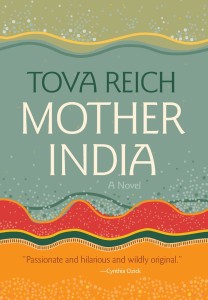 Mother India is a novel that offers a rich, kaleidoscopic view of both the titular country and its multi-faceted culture. The religious Jews who populate the novel add yet another layer of complexity. Fiction Editor Yona Zeldis McDonough talks to author Tova Reich about how the India-Jewish connection has shaped her thinking and her work.
Mother India is a novel that offers a rich, kaleidoscopic view of both the titular country and its multi-faceted culture. The religious Jews who populate the novel add yet another layer of complexity. Fiction Editor Yona Zeldis McDonough talks to author Tova Reich about how the India-Jewish connection has shaped her thinking and her work.
YZM: Tell us something about your own relationship to India.
TR: One of my major preoccupations, I’ve always felt, is religion (and not only Judaism), its ultimately tragic human quest for meaning, and what seems to be its inevitable apocalyptic thrust toward extremism and zealotry. I’ve written about seekers in Israel in my novel Master of the Return, about political fanaticism in my novel The Jewish War, and what might perhaps be called social extremism played out in the marginalization/suppression of women in my novel One Hundred Philistine Foreskins.
- No Comments
 Please wait...
Please wait...